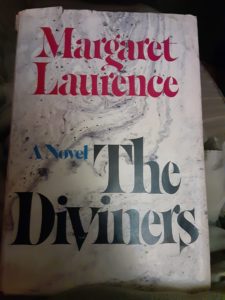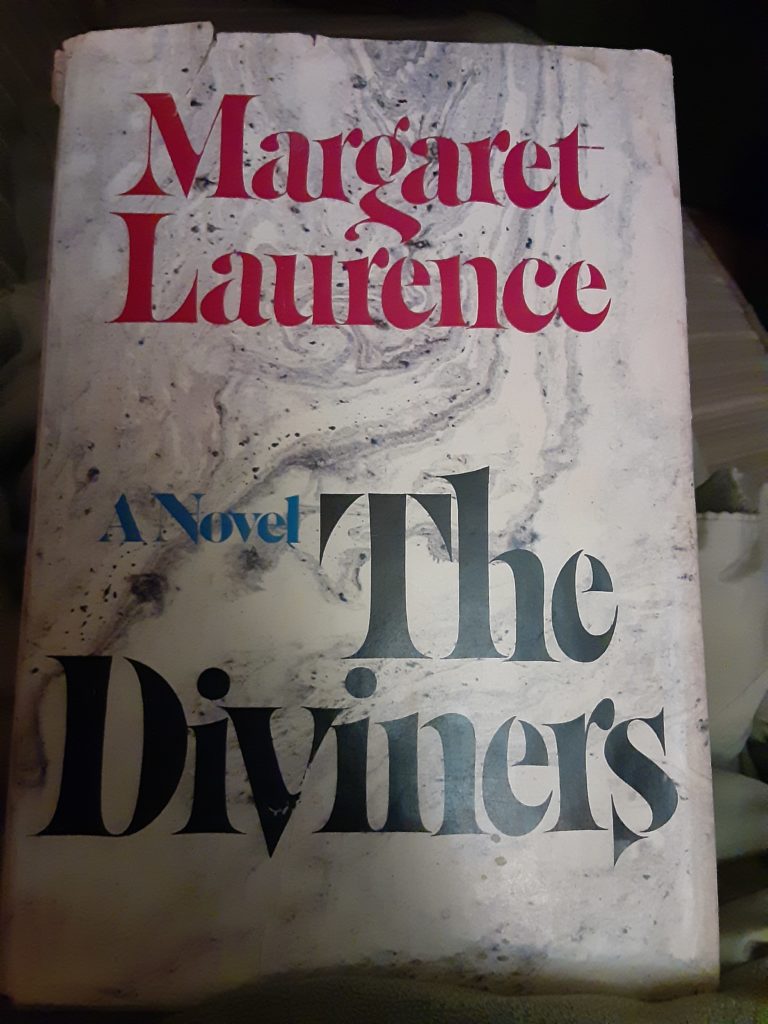[Note: as social media as we’ve known it goes through its prolonged and probably overdue death throes — Cory Doctorow aptly calls this the inevitable result of the ‘enshittification‘ of online platforms — I’m trying out posting things here I might ordinarily have consigned to social media, including provisional and fully-formed thoughts, reviews, recommendations, image galleries and editorialized links. The decline of the relatively open internet ‘out here’ is a real problem, compounded by secretive and coercive algorithms, ossified social networks, the active throttling of news and information, and the manifest decline of social discourse. One of the things I miss most about the open internet (that is, online environments accessible to anyone online, not closed within subscription-based social media platforms designed to hold users hostage to their social networks and keep them scrolling and clicking material they didn’t choose and may not even want to see) is the joy of discovery and the opportunity to pause over something — a ‘long read’ essay, an arresting set of images — and actually think. As a researcher I have a deep love for discovery, but it’s increasingly hard to remember a time when I regularly learned new things or had my mind changed on social media — other than developing an increasingly clear conviction that the social media platforms where many of us interact ‘in public’ have become bad places — and here I am reminded of the excellent work of moral geographer Robert Sack, about whom I will write more soon — that do real harm to their users and to public discourse more generally.]
When I was in high school, Margaret Laurence was required reading in upper-year English classes, usually alternating between The Stone Angel (1964) and The Diviners (19974). Oddly enough, I am not sure either book was assigned reading in any of the classes I took, although I did read The Stone Angel (and the linked stories in A Bird in the House, 1970) and thought for many years that I’d also read The Diviners. It turns out I had not, although I would have preferred it vastly to Susanna Moodie’s tedious, complaint-filled memoir Roughing it in the Bush.
 The other night, while casting about for something to read on my shelves of Canadian literature, The Diviners practically leapt into my hands. I have meant to dig into Laurence for a while, but have so little time for purely leisure reading that I’ve put it off. I settled in with the book, and very soon felt a poignant sort of sorrow that I hadn’t read this book when I was still young enough to get completely lost in Laurence’s story (and oh, wow: it would have been an excellent accompaniment to the months I spent binge-reading Alice Munro in my early twenties). The Diviners is written in Laurence’s inimitable voice, which is plain-spoken (even crude, some would say) and irascible. A characteristic line:
The other night, while casting about for something to read on my shelves of Canadian literature, The Diviners practically leapt into my hands. I have meant to dig into Laurence for a while, but have so little time for purely leisure reading that I’ve put it off. I settled in with the book, and very soon felt a poignant sort of sorrow that I hadn’t read this book when I was still young enough to get completely lost in Laurence’s story (and oh, wow: it would have been an excellent accompaniment to the months I spent binge-reading Alice Munro in my early twenties). The Diviners is written in Laurence’s inimitable voice, which is plain-spoken (even crude, some would say) and irascible. A characteristic line:
I WAS born bloody-minded. It’s cost me. I’ve paid through the nose. As they say. Also, one might add, through the head, heart and cunt.
At the moment I’m just under 100 pages in, and the thing that strikes me most strongly about this novel is Laurence’s keen and forgiving sense of humanity. Some of the characters in The Diviners are short-sighted and self-destructive; others strain against the bounds of their ‘place’ in their families and communities. Still, Laurence emphasizes their vulnerable humanity, and their struggles to function and relate to one another despite the environments into which they have been thrown. I find this refreshing and, these days, increasingly rare. It’s hard to think of other books I’ve read recently whose protagonists are handled with such care. Barbara Kingsolver definitely does this: I’ve just finished reading Kingsolver’s remarkable 2012 novel Flight Behaviour, in which backwoods Tennessee sheep farmers are treated with as much sensitivity and depth as the Harvard-educated scientist who might at first glimpse seem brought in to serve as their as their narrative contrast.
I also love Laurence’s vivid descriptions of her characters’ activities, whether they are scavenging in the local dump, daydreaming, worrying or dowsing. I have, as always while reading an especially excellent book, gotten out the Post-It Notes and started marking passages. Here’s one great example. Morag’s adoptive father Christie, a war veteran with shell shock, frequents the local Nuisance Grounds regularly enough to have developed what he calls “the gift of the garbage-telling.” Pointing at a spill of waste steaming in the afternoon heat, he tells her:
Now you see these bones here, and you know what they mean? They mean Simon Pearl the lawyer’s got the money for steak. Yep, not so often, maybe, but one day a week. So although he’s letting on he’s as hard up as the next —he ain’t, though it’s troubling to him, too. By their christly bloody garbage shall ye know them in their glory, is what I’m saying to you, every saintly mother’s son. [….] Now the paint tins from the Connors’ means the old man’s on the rampage and he’s painting like a devil all the kitchen chairs and suchlike, showing all of them around him that they’re lazy worthless sinners, but he’s painting out his anger, for he thinks his life is shit.
Christie goes on to tell Morag about having once found a dead baby wrapped in newspaper, which he buried in the Nuisance Grounds, retorting, “To hell with their consecrated ground.”
I’ll post more about The Diviners as I work through it. In the meantime, I am enjoying the novel tremendously. It’s no wonder the book won the Governor General’s Award (her second, after winning the GG for A Jest of God in 1966).
One more note: in the 1970s multiple efforts were made to ban The Diviners from some schools in Ontario; the organizer of one such campaign claimed the book “reeked of sordidness.” These efforts, led mainly by Christian fundamentalists, did not succeed greatly but caused harm to Laurence and were forerunners, in some ways, of contemporary censorship campaigns organized by ideologues on both the right and left. By the late 1980s it was still considered a tiny bit boundary-pushing to assign The Diviners; which is, I am sure, one of the main reasons it was required reading most years at the high schools I attended. In my parents’ home, Laurence’s writing was viewed with distaste, although I have little doubt that, were my mother to have revisited The Diviners later in her life, she would have appreciated the author’s realism and perhaps especially Morag’s hope-tinged cynicism.
Over and out for now. Summer grows a little long in the tooth, but it’s a gorgeous sultry afternoon and I will shortly go out to bask in the light and warmth.
